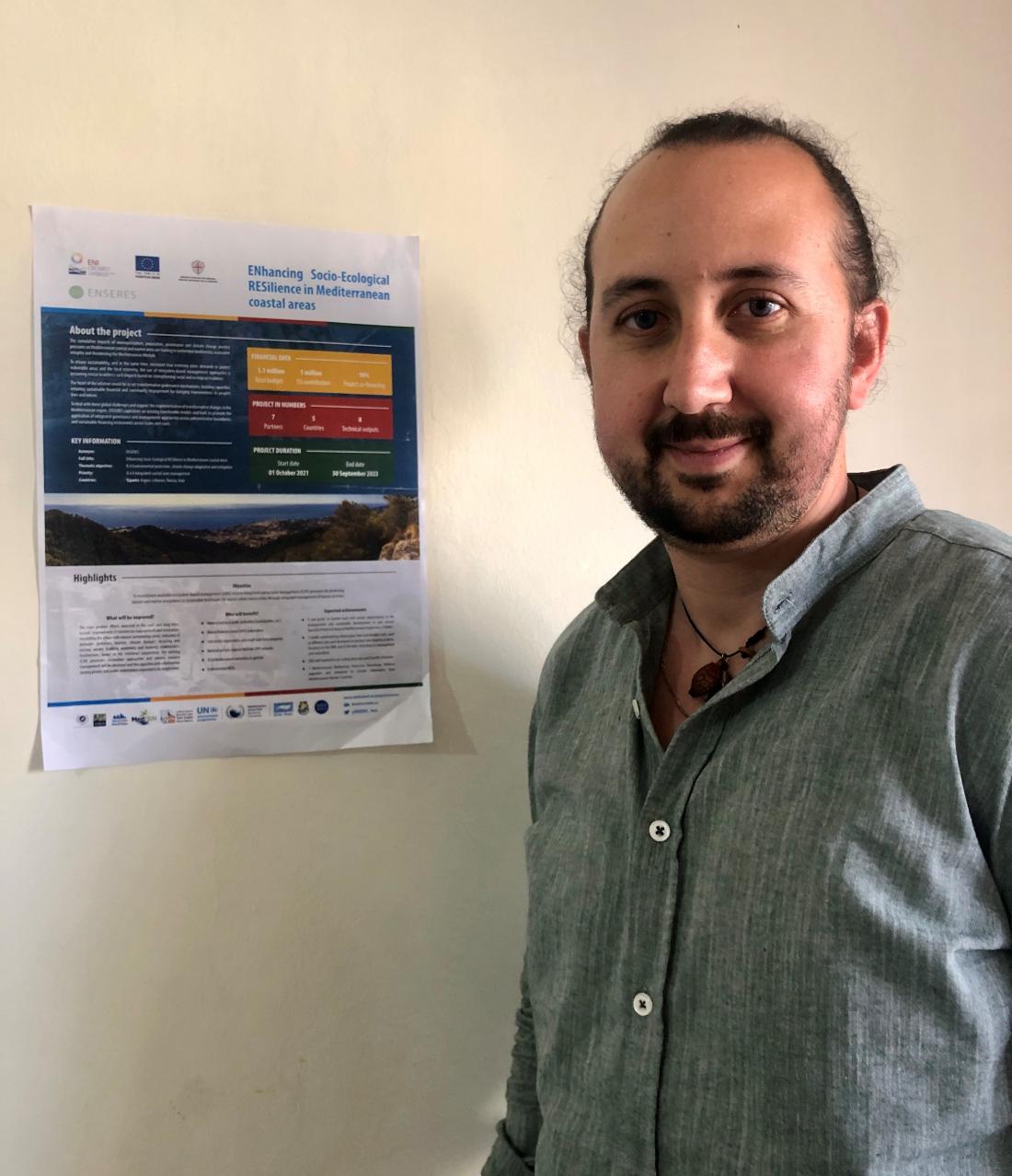Tyre Coast Nature Reserve in Lebanon, to be an implementation spot for ENSERES to preserve its ecosystem and relaunch its sustainable development

The Tyre Coast Nature Reserve (TCNR) is a key partner of the ENSERES project. Together with the municipality of Sfax in Tunisia, the Reserve will be a laboratory for the adoption of innovative tools, devised for the sustainable management of Mediterranean Marine Protected Areas. A multi-level, integrated management model, capable of keeping the environment, economy and culture in harmony.
TCNR is one of the two Marine Protected Areas of Lebanon. It includes a sandy coastal area of 3.8 square kilometers and a marine quadrant extended for 113 square kilometers. The coastal line is home to one of the few sandy beaches left in Lebanon, certainly the longest, and a wetland protected by the Ramsar Convention. The mosaic of water, swamps and dunes hosts rare and fragile animal and plant species, such as the loggerhead and the green sea turtles (which come here to lay their eggs), the Arabian spiny mouse, the wall lizards and the sea daffodil.
Beauty and complexity don't stop at the environmental context. The reserve also includes the Old City, with the ancient port and the souk, an agricultural area and an archaeological site, which includes the Phoenician springs of Ras El Ain.
“The Tyre Reserve hosts environmental, historical and artistic assets of enormous value. The ENSERES project represents a great opportunity: benefiting from the experience of other protected areas in the Mediterranean can improve the management of elements that are sometimes difficult to reconcile, such as the agriculture sector, tourism and nature. Thanks to ENSERES we can be part of a network of Mediterranean protected areas that carry on a cutting-edge experience", says Engineer Hasan Hamza, deputy manager of the project for TCNR.
Tyre is a perfect context for the transmission and implementation of theories and practices that, through the ENSERES project, aim to preserve ecosystems and relaunch their sustainable development. The Lebanese coasts are threatened by serious phenomena of coastal erosion and pollution, against which the Reserve has long been fighting. Suffice it to recall the extraordinary cleaning operation carried out after the environmental disaster of February 2021, when a tide of hydrocarbons invaded the sea and the coasts of southern Lebanon.
ENSERES (ENhancing Socio-Ecological RESilience in Mediterranean coastal areas) is funded by the European Union under the Euro-Mediterranean cooperation program ENI CBC Med









